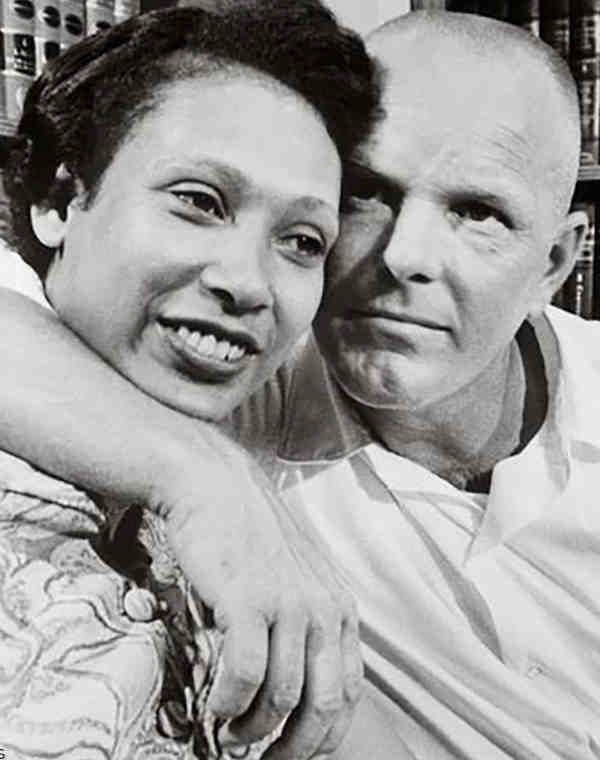On this date in 1967, Loving v. Virginia was decided by the U.S. Supreme Court, which ruled unanimously that Virginia’s statute barring interracial couples from marrying or living together as husband and wife violated the 14th
Amendment.
Mildred and Richard Loving, of mixed race and white heritage respectively, were arrested in the middle of the night in their home several weeks after being married in 1958 in Washington, D.C. When Richard Loving pointed to their framed marriage certificate, Sheriff Garnett Brooks reportedly said, “That ain’t no good here” and took them to jail.
They were charged with a felony under a section of the state code prohibiting interracial couples from being married out of state and then returning to Virginia and pleaded guilty to “cohabiting as man and wife, against the peace and dignity of the Commonwealth.” They were sentenced to one year in prison, with the sentence suspended on condition that they leave Virginia and not return together for at least 25 years. They moved to the District of Columbia.
County Judge Leon Bazile in his decision wrote: “Almighty God created the races white, black, yellow, malay and red, and he placed them on separate continents. And but for the interference with his arrangement there would be no cause for such marriages. The fact that he separated the races shows that he did not intend for the races to mix.”
After the American Civil Liberties Union took the Lovings’ case, it wound its way through the legal process before landing in the U.S. Supreme Court. By then they had two sons, Sidney and Donald, and a daughter, Peggy. Richard Loving, seven years older than Mildred, was killed by a drunk driver in 1975 at age 41 in an accident in which she was injured but recovered. She never remarried and died in 2008 at age 68.
In Obergefell v. Hodges (2015), the Supreme Court invoked Loving, among other cases, as precedent for its holding that states are required to allow same-sex marriages under both the Equal Protection Clause and the Due Process Clause of the Constitution. The court’s decision in Obergefell cited Loving nearly a dozen times.
PHOTO: Mildred and Richard Loving


